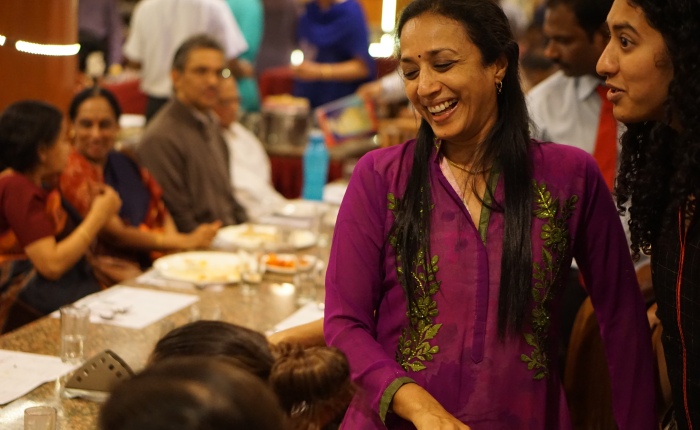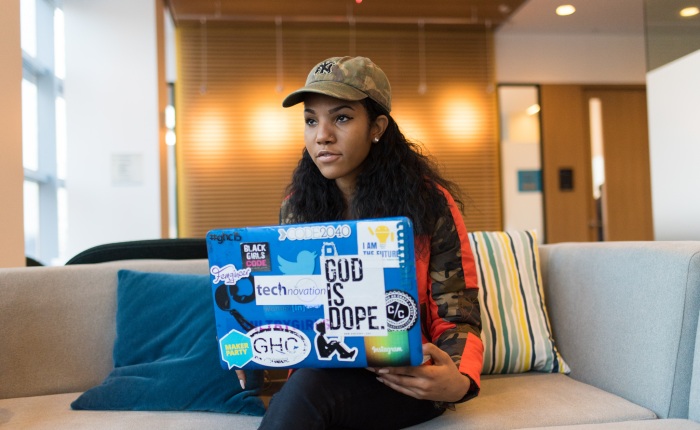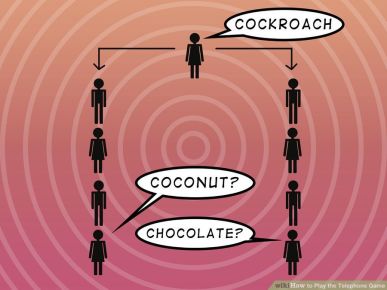Whiteness is often seen as the default in the newsroom.
Hear me out. How often is whiteness the defining characteristic used to describe someone? If I referred to someone as “that white guy from business,” no one would know which white guy I was talking about. Meanwhile, if you refer to me as “that Indian girl from production,” anyone who knows where the production team is would know who was being referred to.
You can argue that it’s a question of numbers. That there aren’t a lot of brown people in the newsroom, so it makes sense for that to be how I’m identified. Which is fair, but problematic in its own way. Years ago, I was searching for evidence to back up my claims that newsroom diversity is important, when I came across this column by then-New York Times public editor Margaret Sullivan. “When a group is truly diverse, the nefarious groupthink that makes a publication predictable and, at times, unintentionally biased, is much more likely to be diminished,” Sullivan writes. “And that’s a good thing.”
If you want to see what unintentional bias looks like, take the example of a media outlet that uses a photo of a black victim of violence holding what looks like a gun. This actually happened in the case of Nia Wilson, an 18-year-old black woman who was murdered at a train station. (Not that it should change how you think about the situation if she was actually holding a gun, but it was a gun-shaped phone case.) The news station in this case, KTVU, apologized and said the photo would never go on air again.
The usage of that particular photo of Wilson is problematic because, as the Washington Post puts it, “Studies about race and media often arrive at the same conclusion: Black people are more likely to be shown in a negative light, compared with white people.” You might remember the NYT article that came out after Michael Brown’s death in a police shooting that called him “no angel.” The backlash to this description sparked a hashtag, #IfTheyGunnedMeDown, where people posted contrasting photos and asked which one would be used by media outlets if they were killed.
I’m not sure how diverse KTVU’s newsroom is, or what their vetting process for photos is. But in this case, as in many others, running the photo past people who have knowledge of unintentional bias could have led to a change in photo choice.
Yet people of color, and especially women of color, are scarce in the newsroom. In 2016, Hispanic, black and Asian women made up less than 5 percent of newsrooms at print and online news publications, a diversity survey from the American Society of News Editors found. Even more worrying to me (on both a newsroom and a personal level) is that women of color tend to be more impacted by layoffs in the news industry than other groups, according to research from Alex T. Williams, a doctoral candidate at the University of Pennsylvania who studies media trends. “Between 2009 and 2015, the number of black women in newsrooms dropped from 1,181 to 730; the number of Latinas in newsrooms dropped from 840 to 584; and the number of Asian American women dropped from 758 to 466,” NPR reported.
I’m not saying media bias would be solved if newsrooms were diverse. By virtue of being human, I don’t see bias as a thing we can completely eradicate. But I think we can eliminate much of it through hiring more people from diverse backgrounds — and through changing the way newsrooms operate altogether.
“The norms of journalism, and the routines of news organizations, are deeply ingrained,” Williams told NPR. “Expecting a handful (or often less) of non-white employees to improve news coverage places a lot of pressure on them — when it likely requires a larger commitment from the entire newsroom or organization. If we hope to see more widespread change, the commitment needs to be a lot deeper than ‘diversity hiring.'”
As a woman of color in a newsroom, I understand this deeply. I’ve been mistaken for the other women of color in the newsroom, even if we look nothing alike. (Even if we’ve both introduced ourselves to the person who mixed us up on multiple occasions.) While I’ve generally been treated fairly, it’s the microaggressions that get me. Whether it’s the white colleague who casually proclaimed that the newsroom will never be more diverse, or the editor who avoided greeting me when I joined the company, but was there instantly with each white coworker on my team who joined after me.
Being a person of color is like this: When coming back to France, where I was studying abroad, from a weekend in London, I was with three white/white-passing friends. All three of them entered the country without a problem, but I had to wait several extra minutes while the agent on duty took my fingerprints.
Imagine if you had to do that every day. A few minutes here or there doesn’t seem like a big deal, but it adds up.
The fact of the matter is that being a person of color (or an LGBTQ+ person, etc.) in the workplace is tiring. And while I appreciate the efforts that are being made to increase and retain diverse talent, such as through diversity committees, I often feel like we aren’t challenging the status quo as much as we could be.
So here’s my call to action for hiring managers, recruiters, and general people in the newsroom: Hire more people from diverse backgrounds, but also consider how you can take pressure off your colleagues and make the workplace more inclusive. Don’t just hire a brown person or a transgender person and consider your commitment to diversity fulfilled.
Image: WOCinTech Chat



 Still, some of these news sources aren’t actually news sources at all. Some of them are partisan websites that have a specific conservative or liberal agenda they’re hoping to push you towards with biased writing. You’ve heard of
Still, some of these news sources aren’t actually news sources at all. Some of them are partisan websites that have a specific conservative or liberal agenda they’re hoping to push you towards with biased writing. You’ve heard of 





